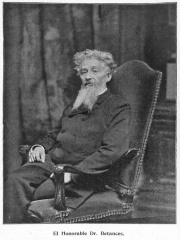
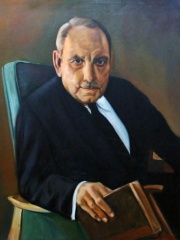
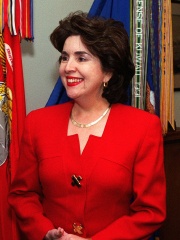
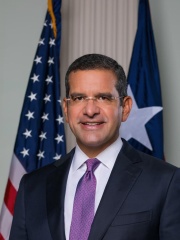
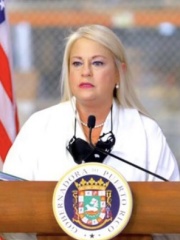
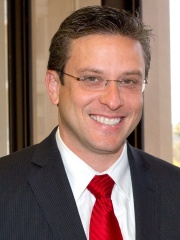
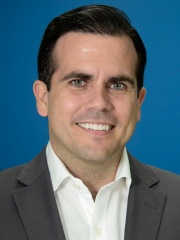
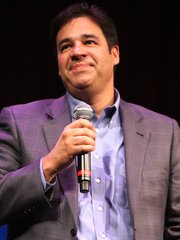
The Most Famous
POLITICIANS from Puerto Rico
This page contains a list of the greatest Puerto Rican Politicians. The pantheon dataset contains 19,576 Politicians, 9 of which were born in Puerto Rico. This makes Puerto Rico the birth place of the 167th most number of Politicians behind Grenada, and Equatorial Guinea.
Top 9
The following people are considered by Pantheon to be the most legendary Puerto Rican Politicians of all time. This list of famous Puerto Rican Politicians is sorted by HPI (Historical Popularity Index), a metric that aggregates information on a biography's online popularity.

1. Ramón Emeterio Betances (1827 - 1898)
With an HPI of 57.11, Ramón Emeterio Betances is the most famous Puerto Rican Politician. His biography has been translated into 18 different languages on wikipedia.
Ramón Emeterio Betances y Alacán (April 8, 1827 – September 16, 1898) was a Puerto Rican independence leader, abolitionist and medical doctor. He led the nations independence movement and was the primary instigator of the Grito de Lares revolt and designer of the Lares flag. Betances is considered to be the father of the Puerto Rican revolutionary movement and El Padre de la Patria (The Father of the Homeland). His charitable deeds for people in need, earned him the moniker of El Médico de los Pobres (The Doctor of the Poor). Betances was also a medical doctor and surgeon in Puerto Rico, and one of its first social hygienists. He had established a successful surgery and ophthalmology practice. Betances was also an abolitionist, diplomat, public health administrator, poet, and novelist. He served as representative and contact for Cuba and the Dominican Republic in Paris. An adherent of Freemasonry, his political and social activism was deeply influenced by the group's philosophical beliefs.

2. Luis Muñoz Marín (1898 - 1980)
With an HPI of 54.74, Luis Muñoz Marín is the 2nd most famous Puerto Rican Politician. His biography has been translated into 16 different languages.
José Luis Alberto Muñoz Marín (February 18, 1898 – April 30, 1980), most commonly known as Luis Muñoz Marín, was a Puerto Rican journalist, politician, and statesman who served as the first democratically elected governor of Puerto Rico from 1949 to 1965. He previously served as the fourth president of the Senate of Puerto Rico from 1941 to 1948. Founder of the Popular Democratic Party (PPD) in 1938, Muñoz Marín promoted the industrialization of the archipelago and island in continued association with the United States, prioritizing economic development over independence. He is regarded as the architect of the Commonwealth of Puerto Rico (Spanish: Estado Libre Asociado de Puerto Rico, lit. 'Free Associated State of Puerto Rico'), the current political status of Puerto Rico as an unincorporated territory under the sovereign jurisdiction of the United States with local constitutional self-government since 1952. Serving as governor for 16 consecutive years from 1949 to 1965, Muñoz Marín spearheaded an administration that engineered profound economic, political, and social reforms, leading to accomplishments that were internationally lauded by many politicians, statesmen, political scientists, and economists of the period. He was instrumental in the suppression of the Nationalist Party and its efforts to achieve the independence of Puerto Rico as a sovereign state, which he supported before adopting a political platform that advocated accommodation with the United States. He was awarded the Presidential Medal of Freedom by President Kennedy in 1963.

3. Sila María Calderón (b. 1942)
With an HPI of 54.47, Sila María Calderón is the 3rd most famous Puerto Rican Politician. Her biography has been translated into 20 different languages.
Sila María Calderón Serra (born September 23, 1942) is a Puerto Rican politician, businesswoman, and philanthropist who served as the eighth democratically elected governor of Puerto Rico from 2001 to 2005. Calderón became the first female to be elected or serve as governor since the establishment of the office in 1508. She previously served as the mayor of San Juan, the capital municipality of Puerto Rico, from 1997 to 2001. She also held various positions in the government of Puerto Rico, including Secretary of State from 1988 to 1989.

4. Pedro Pierluisi (b. 1959)
With an HPI of 52.13, Pedro Pierluisi is the 4th most famous Puerto Rican Politician. His biography has been translated into 16 different languages.
Pedro Rafael Pierluisi Urrutia (born April 26, 1959) is a Puerto Rican politician and lawyer who served as the Governor of Puerto Rico from 2021 to 2025, having previously been the de facto governor from August 2–7, 2019. A member of New Progressive and Democratic Parties, he previously served as acting Secretary of State of Puerto Rico in 2019, as Resident Commissioner of Puerto Rico from 2009 to 2017, and as Secretary of Justice of Puerto Rico from 1993 to 1997. He was formerly a private attorney for Puerto Rico's fiscal oversight board under the Puerto Rico Oversight, Management, and Economic Stability Act. Pierluisi lost the New Progressive nomination in the 2024 gubernatorial election to Jenniffer González-Colón.
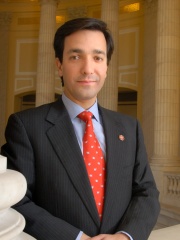
5. Luis Fortuño (b. 1960)
With an HPI of 48.65, Luis Fortuño is the 5th most famous Puerto Rican Politician. His biography has been translated into 23 different languages.
Luis Guillermo Fortuño Burset (born October 31, 1960) is a Puerto Rican politician who served as the governor of Puerto Rico, an unincorporated territory of the United States, from 2009 to 2013. Fortuño served as the first secretary of economic development and commerce of Puerto Rico (1994–1997), as the executive director of the Puerto Rico Tourism Company (1993–1994), and as the president of the Puerto Rico Hotel Development Corporation during the administration of Pedro Rosselló. In 2004, Fortuño was elected resident commissioner of Puerto Rico, defeating Senator Roberto Prats. As resident commissioner, Fortuño represented Puerto Rico in the United States House of Representatives from 2005 to 2009; during his tenure, he served as Chair of the Congressional Hispanic Conference, as a Member of the newly created United States House Natural Resources Subcommittee on Insular Affairs and as co-chair of the Friends of Spain Caucus. Fortuño won the 2008 PNP gubernatorial nomination by a wide margin after defeating former governor and then-senator Pedro Rosselló in the primaries. He then won the general election by a comfortable margin, defeating incumbent governor Aníbal Acevedo Vilá. Fortuño has served as president of the New Progressive Party of Puerto Rico (PNP), the Council of State Governments, and the Southern Governors Association. Fortuño sought to be re-elected as governor in the 2012 elections, but was defeated by Alejandro García Padilla by 0.6%.

6. Wanda Vázquez Garced (b. 1960)
With an HPI of 45.20, Wanda Vázquez Garced is the 6th most famous Puerto Rican Politician. Her biography has been translated into 17 different languages.
Wanda Emilia Vázquez Garced (born July 9, 1960) is a Puerto Rican politician and attorney who served as governor of Puerto Rico from 2019 to 2021. Vázquez Garced previously served as the 19th Secretary of Justice from 2017 to 2019. A member of the New Progressive Party (PNP) and Republican Party of Puerto Rico, she is the second female governor to serve, after Sila María Calderón. Vázquez Garced was constitutionally appointed to the governorship following the resignation of Ricardo Roselló, and the judicial annulation of the assumption of the office by Pedro Pierluisi after the Telegramgate Scandal. She failed to secure the PNP gubernatorial nomination for the 2020 general elections, losing to Pedro Pierluisi, who was elected governor. The ascension to the governorship by Vázquez Garced was at the epicenter of a landmark decision by the Supreme Court of Puerto Rico in the case of Senado de Puerto Rico v. Hon. Pedro R. Pierluisi. The highest court in Puerto Rico derogated a clause added by Puerto Rico Law #7 of 2005 (Law No. 7-2005) to the Constitution of Puerto Rico. This annulled Pedro Pierluisi's assumption of the office, and reinforced the 1952 Constitution's provisions for succession of government. On August 4, 2022, Vázquez Garced was arrested by the FBI, on charges of corruption, over a bribery case connected to her 2020 gubernatorial campaign; she had demanded the Commissioner of Financial Institutions to resign. On August 27, 2025, Vázquez Garced pleaded guilty to a campaign finance violation, becoming the first former Governor of Puerto Rico in history to plead guilty to a crime. She is expected to be sentenced on October 15, 2025.

7. Alejandro García Padilla (b. 1971)
With an HPI of 45.12, Alejandro García Padilla is the 7th most famous Puerto Rican Politician. His biography has been translated into 20 different languages.
Alejandro Javier García Padilla (Spanish: [aleˈxandɾo ɣaɾˈsi.a]; born August 3, 1971) is a Puerto Rican politician and attorney who served as the governor of Puerto Rico from 2013 to 2017. Prior to this position, García Padilla held various roles in the political landscape of Puerto Rico; first as Secretary of Consumer Affairs, and then as a member of the 24th Senate of Puerto Rico and as president of the Popular Democratic Party. Locally, he is a staunch advocate for maintaining the current political status of Puerto Rico as that of an unincorporated territory of the United States with self-government, while at the national level he is allied with the Democratic Party. As governor, García Padilla shared his legislative powers with the 25th Senate and 29th House of Representatives, both controlled by his party. Regardless of this, he was not able to persuade several members of his own party to support his proposals. This failure, in addition to his low popularity, ultimately led him to not seek re-election thus becoming the second governor in Puerto Rican history to not do so after their first term.

8. Ricardo Rosselló (b. 1979)
With an HPI of 41.34, Ricardo Rosselló is the 8th most famous Puerto Rican Politician. His biography has been translated into 21 different languages.
Ricardo Antonio "Ricky" Rosselló Nevares (Latin American Spanish: [roseˈʝo neˈβaɾes]; born March 7, 1979) is a Puerto Rican former politician, businessman, neurobiologist and educator. He served as Governor of Puerto Rico from 2017 until his resignation in 2019. In 2021, he returned to active politics by receiving 53,823 write-in votes as a congressional shadow delegation member, becoming the first Puerto Rican politician to be directly nominated. He is the son of Pedro Rosselló, a former governor of Puerto Rico and pediatric surgeon. Rosselló studied chemical engineering biomedical engineering and economics at the Massachusetts Institute of Technology (MIT), researching adult stem cells, earned his master’s and doctorate from the University of Michigan and postdoctoral studies in neuroscience and neurobiology at Duke University. In 2010, Rosselló founded the political advocacy group Boricua ¡Ahora Es! to advocate for changing the current political status of Puerto Rico. Rosselló supports Puerto Rican statehood. Following several years of political advocacy, Rosselló announced that he would seek the nomination of the New Progressive Party (PNP in Spanish) for Governor of Puerto Rico in 2016. After winning the New Progressive Party primary, Rosselló was elected governor in the 2016 general election, defeating five other candidates. In July 2019, Rosselló faced widespread controversy after a group chat on the Telegram app between Rosselló and his staff was made public. The chat contained offensive language, including sexist, homophobic, and misogynistic, and elitist remarks, as well as discussions on the operation of Internet troll networks on social media. A message by one of the participants in the chat mocked the struggles faced by Puerto Ricans in the aftermath of Hurricane Maria, which had caused around 3,000 deaths, although this has been refuted by the author. The chat was later found to be “not original, edited, and manipulated” by an independent prosecutor. Notwithstanding, the leak led to widespread protests across Puerto Rico, with demonstrators calling for Rosselló’s resignation. On July 17, 2019, an estimated 500,000 people participated in protests in Old San Juan. Initially, Rosselló stated his intention to complete his term as governor, but he later announced that he would resign, which he did on August 2, 2019. In 2020, an independent prosecutor found that the chat was “not original, edited, and manipulated”, concluding that there was “no corruption or crime or intent of corruption or crime”. During his governorship, Rosselló was elected to be the president of the Council of State Governments (CSG), apart from being awarded the education policymaker of the year and recognized for outstanding achievements in public health. Rossello published The Reformer’s Dilemma in 2024, a book about his political experience and challenges with reforms. The book was a finalist in the American Book Fest. Rossello is currently the Chief Vision Officer for The Regenerative Medicine Institute, a longevity and stem cell research institute and clinic.

9. Raúl Labrador (b. 1967)
With an HPI of 36.63, Raúl Labrador is the 9th most famous Puerto Rican Politician. His biography has been translated into 15 different languages.
Raúl Rafael Labrador (born December 8, 1967) is an American lawyer and politician who has served as the 33rd attorney general of Idaho since 2023. A member of the Republican Party, he was the U.S. representative for Idaho's 1st congressional district from 2011 to 2019 and chaired the Idaho Republican Party from 2019 to 2020. Prior to this, Labrador represented the 14B district in the Idaho House of Representatives from 2006 to 2010. Labrador first entered Congress in the 2010, winning the Republican primary with the support of Tea Party activists, and defeating Democratic incumbent Walt Minnick in the general election. In 2014, Labrador mounted an unsuccessful challenge to Kevin McCarthy for the position of House Majority leader, where he positioned himself as a conservative alternative. In 2015, Labrador became one of the nine inaugural members of the House Freedom Caucus, a right-wing congressional caucus. Labrador sought his party's nomination for governor in the 2018 election, opting not to seek another term in Congress to focus on his campaign; he finished second in the Republican primary to Lieutenant Governor Brad Little, who went on to win the election. Labrador sought the nomination for the state attorney general in the 2022 election, defeating longtime incumbent Lawrence Wasden for the Republican nomination and Democratic nominee Tom Arkoosh in the general election.
People
Pantheon has 9 people classified as Puerto Rican politicians born between 1827 and 1979. Of these 9, 7 (77.78%) of them are still alive today. The most famous living Puerto Rican politicians include Sila María Calderón, Pedro Pierluisi, and Luis Fortuño. The most famous deceased Puerto Rican politicians include Ramón Emeterio Betances, and Luis Muñoz Marín. As of April 2024, 1 new Puerto Rican politicians have been added to Pantheon including Raúl Labrador.
Living Puerto Rican Politicians
Go to all RankingsSila María Calderón
1942 - Present
HPI: 54.47
Pedro Pierluisi
1959 - Present
HPI: 52.13
Luis Fortuño
1960 - Present
HPI: 48.65
Wanda Vázquez Garced
1960 - Present
HPI: 45.20
Alejandro García Padilla
1971 - Present
HPI: 45.12
Ricardo Rosselló
1979 - Present
HPI: 41.34
Raúl Labrador
1967 - Present
HPI: 36.63

